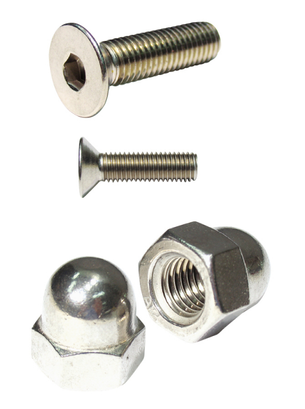Determining Your Nut and Bolt Compatibility
Nuts and bolts are two of the most versatile instruments used in construction. They are some of the most commonly used types of fasteners and have experienced enduring popularity in a diverse range of applications thanks to their adaptability. They often function as the most crucial components of household appliances, motor engines and building structures, as well as clamping for valves.
Considering that their main assets are their strength and durability, it is crucial to ensure that your nuts and bolts are compatible. They must be of complementary size, shape, tensile strength and stretchability level, or their durability and clamping force may deteriorate over time.
Here are some things to watch out for when determining your nut and bolt compatibility:
Check the IFI standards of your nuts and bolts
For most fastening needs, the Industrial Fastener Institute (IFI) guidelines are the gold standard. IFI guidelines recommend that the strength of the nut be higher than the strength of the bolt. The ‘proof stress’ or the overall durability of your nuts and bolts is measured in psi. For example, heat-treated fasteners made out of medium carbon have bolts of approximately 90,000 psi. In that case, you should pair it with a 90,000 psi or higher nut.
Select a nut that is 20% more durable than the bolt for added security. The rule applies more to fasteners made out of ferrous metals. For non-ferrous metals, nuts of the same strength will generally fit securely to their corresponding bolt.
Use nuts and bolts of similar strength and material
When nuts and bolts are fitted together via threads, the weakest link will be the feeblest shear plane in the thread profile and the point where any breakage will begin. Usually, it is the thread made out of the weakest material. To prevent breakage and tension, use nuts and bolts of the same alloys, which are virtually of the same strength.
The one exception to the rule is if the connection’s galvanic corrosion will not affect its lifespan. In this case, manufacturers get around the issue by overtapping the fasteners, which protects against corrosion. The process may reduce your fasteners’ proof stress, so make sure to have them hot-dipped galvanised beforehand. In any case, using nuts and bolts of similar material is still recommended.
Corrosion Resistant Nuts and Bolts
As one of Sydney’s leading nuts and bolts suppliers, we understand the need for superior materials in construction.
To meet the demands of our clients, we deliver a diverse range of nuts and bolts manufactured from high-quality metals. Our products are equipped to resist corrosion, sparing you the need to seek out frequent maintenance and repair for your construction projects.
Our nuts and bolts are manufactured from 316-grade stainless steel, allowing the products to withstand the harsh conditions of Australia. We also offer more economical choices, such as galvanised and zinc fasteners.
Timberfix delivers a comprehensive set of hardware and site supplies for construction projects across Australia. Contact us today.


